
Sananda Maitreya: “With each passing year, I appreciate my time in the United States Army with more and more gratitude.”
The prolific artist formerly known as Terence Trent D’Arby continues to mine a rich seam of mystical and musical inspiration
Artist, songwriter, arranger, producer and multi-instrumentalist, Sananda Maitreya was born Terence Trent Howard in New York in 1962. A child prodigy, obsessed with the Beatles, he was raised in Florida playing in bands like the Modernaires during his high school years. However, rather than pursuing a career in music, Terence trained as a boxer in Orlando – winning the Florida Golden Gloves lightweight Championship in 1980 – before going on to serve in the US Army for three years. During a year where he was posted in Germany, Terence became the lead singer of the band The Touch, then returned to America to become a solo artist and was signed to Columbia Records.
Better known by his former stage name Terence Trent D’Arby, his debut album Introducing The Hardline According To Terence Trent D’Arby, launched him to international success in 1987, earning a Grammy Award for Best R&B Vocal Performance and a Brit Award nomination for Top International Newcomer the year after. Three further studio albums followed – Neither Fish Nor Flesh in 1989, Symphony Or Damn in 1993 and Vibrator in 1995 – before adopting the new moniker and identity, Sananda Maitreya, at the age of 33.
The turn of the millennium marked his new life as an independent artist with the fifth album WildCard!, as well as being the year he stepped in as the lead singer of INXS at the Sydney Olympic Games opening ceremony. Subsequent years saw Sananda continue his prolific output of ‘post millenium rock’, through his independent label Treehouse Publishing, releasing the double CD Angels & Vampires in 2006/07, Nigor Mortis in 2009, The Sphinx in 2011 and Return To Zooathalon in 2013. In each case, he still plays every instrument and writes, produces, arranges and performs every song.
This month saw Sananda release another double album, The Rise Of The Zugebrian Time Lords, giving Songwriting the opportunity to step into his world of relentless creativity and fervent musical vision…
See Sananda Maitreya’s Live Dates & Tickets
How did you go from being a boxer and a soldier to being a singer?
“With each passing year, I appreciate my time in the United States Army with more and more gratitude. It was my university and finishing school, although I had attended the University of Central Florida for a year. It validated my illusions that I was a soldier and confirmed the discipline that my art form would later require in order for me to succeed.”
I WAS HUGGED TIGHTLY BETWEEN THE BREAST OF A VERY GENEROUSLY ENDOWED WOMAN
You’d already started playing music a long while before then though, hadn’t you?
“I started making my own music as soon as I understood that I could. I was in my early adolescence before realising that not all other people went around hearing music in their heads the way that came naturally to me. It has always been a part of my life from the very early church to my discovery of the Beatles at the age of two years old. I was a child prodigy and very early began to work with music in any way I could get my hands on it. It is a possession, it takes over your life.”
Was it The Beatles that inspired you to first write songs?
“They did not inspire me to write songs, I was too young to think like that. They inspired me to make music; the ‘songs’ part came after. What most inspired me to write songs was the impulse. You begin to notice that you can, and then the next step is to begin walking in the footsteps of your masters, without stealing from them. Then you simply hope that you can reach a level whereby you inspire someone else, as you yourself have been inspired.
“I can also recall being four years old, maybe younger, and singing a song in church, where after completing the song, I was hugged tightly between the breasts of a very generously endowed woman. It was a good feeling, and it inspired my decision to follow music as much as anything could.”

Sananda: “I always imagine another songwriter even when writing alone.”
Who else influenced you at that age?
“Very early on it was Motown, The Jackson 5, Stevie Wonder, Sam Cooke, Rod Stewart, The Rolling Stones, James Brown, Jimi Hendrix, Sesame Street… Elvis films were a big influence. And Danny Kaye movies. Later it became Dylan, Tom Petty, Springsteen, Neil Young, Zeppelin, The Who, Donny Hathaway, Otis Redding, Todd Rundgren, Prince and more than a few others.”
You’re known for being a multi-instrumentalist, but what do you use to write?
“The first instrument is usually my imagination. From there, I take the idea and translate it according to which instrument I hear as the main dominant; keyboard or guitar. Any instrument can inspire collaboration when the music is a part of your soul. The fact that I can work with many instruments is an immense comfort to my life. There is no greater therapy for my soul.”
Do you prefer writing alone or collaborating?
“I prefer writing anytime inspiration is present. I write mainly alone because I can and because it is more expedient, usually, and less time consuming. I always imagine another songwriter even when writing alone, to take advantage of the bipolar nature of being an artist!”
I HAVE TO WRITE TO STAY A STEP AHEAD OF MY DEMONS
Take us through your typical day as a songwriter.
“If inspired to write, I first tend towards singing the ideas into a Dictaphone with all of the parts, as they come to me. This is listening more than dictating, or writing. The other main way is to simply go to an instrument and begin dictating your will upon what you wish to achieve. With enough time and experience, this becomes what happens. Unless I have to knock off a song real quick, which is sometimes very refreshing. Otherwise, I work with a song by playing it as often as I can, while it evolves, so that the structure becomes familiar.”
Where do you like to write?
“I write when lightning strikes and it could be anywhere, but for sure it is most likely to happen when it is most inconvenient! Which means that the song idea that excites you most that day is the one that happens when you are peeing, and your taxi is outside, waiting! At this point in my life, I have attained enough experience and karma to be able to write by inspiration, or simply because I feel like writing. It also helps that I have to write to stay a step ahead of my demons. But I mainly like to write while sitting in the bank and being told that I am not broke!”
So do you write in the studio?
“My tendency has always been to do as much preparation – arrangement and preproduction – as possible, before going into the studio. I can create from scratch in the studio when necessary, and when it is sometimes good to shake things up, but I prefer to know my songs before going into as sacred a space as a recording studio. The songs are often written to a script that follows the project’s intentions, so I’m more often than not aware of what I need to do before going to record.”

Sananda: “I’m more excited writing with a landscape in mind, rather than just writing yet another collection of songs.”
How do you record spontaneous ideas?
“Mainly by shouting loudly in my wife’s ear! She’s Italian, so she hears everything and forgets nothing! If she’s not available, I use either a Dictaphone, an app or I pick up the nearest instrument and start grooving it into my brain.”
What tends to come first: melody, chords, lyrics or the title?
“With me, when the melody comes first, it usually comes with a phrase. Most of my songs, when they come by inspiration, usually come with most of the song already finished in its basic structure, including melody, main lyrics and rhythm. The meat of the plate I’m given; I provide the veggies and sauces! At this juncture, I’m properly challenged by having some theatre to write for. The last three projects [2011’s The Sphinx, Return To Zooathalon in 2013 and this year’s The Rise Of The Zugebrian Time Lords] in particular have been written with a new form of musical theatre in mind. Maybe one day we will see them on the stage. A man can dream.”
How about when you start an album – do you begin with the concept, or do you each one evolve?
“For most of my career experience, the album evolves from out of the previous. Usually, midway through one project, the next begins revealing itself. At this point, I’m more excited writing with a landscape in mind, rather than just writing yet another collection of songs… until that becomes exciting again. My mind enjoys concepts. Blame NASA and their programs! I’m also excited about The Rise Of The Zugebrian Time Lords because it evolved from the two projects, The Sphinx and Return To Zooathalon, and will lead also into the next project, Prometheus & Pandora.”
THE SPIRIT NEEDS TIME TO CONSIDER OTHER MATTERS THAT CONSUME LIFE FOR NEW IDEAS
What feeds your creativity?
“Mainly, I draw my creative will from listening to what my desires and fantasies are, and following them, as any other blind man is meant to. I trust my inner drummer. As much as anything, what feeds creativity is the need to create. A title and concept like The Rise Of The Zugebrian Time Lords gives one a lot of ‘space’ to create from, literally as well as figuratively.”
What do you do if you ever run out of ideas?
“There is a fail proof method for writers block. The first rule is to accept it as a break and a new incubation period – a necessary part of the process. The spirit needs time to consider other matters that consume life for new ideas and direction. And when ready to resume work, just start working. Work produces work, which produces more work. Once the impulse is initiated, the work will come.”
Lastly, what song do you wish you’d written?
“Happy Birthday. The royalties of that song alone would keep me in castles in the sky forever! Every songwriter has a list of songs that they wished they had written; my list is too long for your mandate. But Happy Birthday is the most useful song ever written, and not a day goes by when it isn’t sung. Now that is great songwriting!”
See Sananda Maitreya’s Live Dates & Tickets



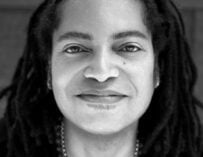


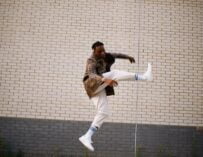


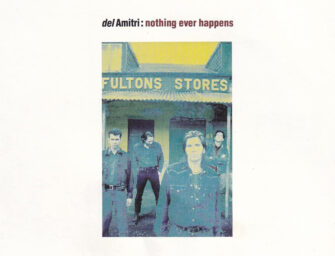

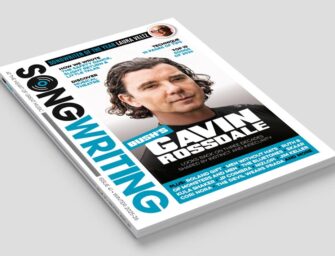
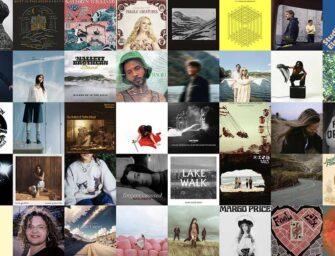





















Awesome love this no were he’s coming from spiritualy plus we’re both born the same year and month!! ? ? music wht we live for✌